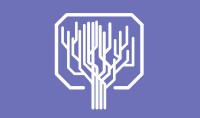Generalizing Game Theory
Game theoretic concepts apply whenever the actions of several agents are interdependent. These agents may be individuals, groups, firms, or any combination of these. The concepts of game theory provide a language to formulate, structure and analyze situations of interdependence between adaptive agents, out of which can emerge dynamics of conflict and cooperation. As a method of applied mathematics, game theory has been used to study a wide variety of human and animal behaviors. It was firstly developed in economics to understand a variety of economic behaviors, including behaviors of firms, markets, and consumers, but has since been used to model a myriad of phenomena, such as the interaction of nation states within international politics, crime, ecosystem dynamics, the routing of internet traffic and much more.
Classical game theory describes the behavior of rational players. It attempts to mathematically capture behavior in strategic situations, in which an individual’s success in making choices depends on the choices of others. The limitations of this classical game theory are long since know, but they are becoming more apparent as behavioral economics exposes them to real-world experiments and as we attempt to construct a more complex understanding of human motives and human interaction. The game theory of the past was focused on theory, mathematical elegance, closed form solutions, rigor and precise predictions, but in the process, it often ended up divorcing itself from the empirics of real-world socio-economic interaction.
Today developing models for the interaction between people is of critical importance within a wide variety of domains, both in the social sciences but also in management and design. Today there is a great demand for a game theory that puts empirics first; one that is grounded in real-world interaction and can accurately reflect the complexity of the many social interactions that we encounter on a daily basis and the motives of agents engaged in them. Achieving such a game theory framework will require a generalization of the existing game theory framework beyond its foundation. As we move into the world of studying more complex systems there is an increasing demand for a more general conception of game theory. One that is capable of studying all forms of interaction between adaptive agents without the restrictive assumptions that are an inherent part of Classical Game Theory.
In this paper, we look at the ongoing evolution of game theory, from its origins in classical game theory to more recent developments. We trace the past, present and potential future of game theory in search of an expanded formulation of game theory that would be relevant to the modeling of complex socioeconomic systems. Our primary focus here is on identifying the limitations within the existing game theory framework and how it can be expanded to accurately deal with more complex scenarios of socioeconomic interaction. At each step we try to identify and make explicit the assumptions inherent in standard game theory models and how these both enable and constrain the modeling process; how such assumptions may be revised in the light of new developments within complexity theory to better suit the modeling of interactions within complex socioeconomic systems.










